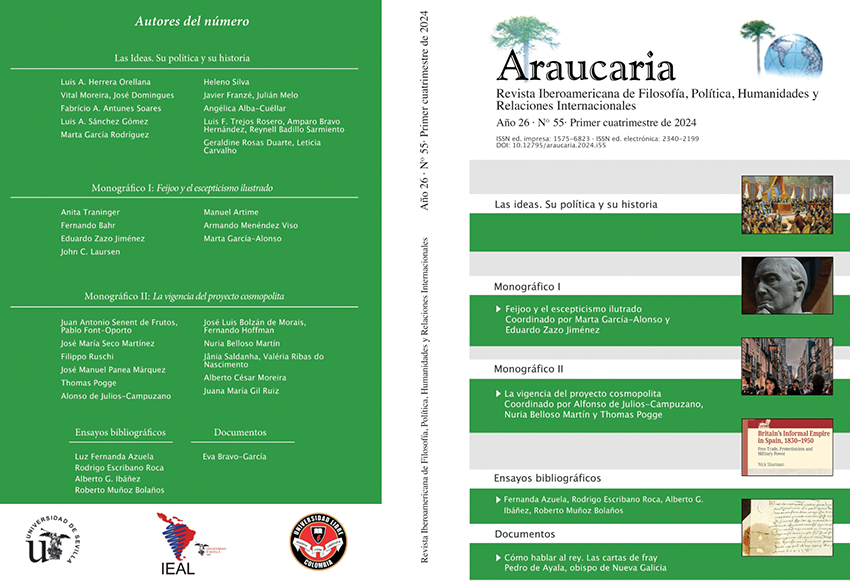Cosmopolitismo en la era de la globalización
The cosmopolitan tradition and its relevance in times of globalization
DOI:
https://doi.org/10.12795/araucaria.2024.i55.24Keywords:
cosmopolitismo,modernidad,globalización,universalismoAbstract
Cosmopolitan theories have undergone a significant revitalization in our times as a result of the intensification of human relations brought about by the phenomenon of globalization. In recent decades, particularly since the fall of the Berlin Wall, there has been a flourishing of cosmopolitan theses that aspire to offer a theoretical model from which to understand and transform reality in this era of openness and growing interdependence inaugurated by globalization. In this paper we make a historical and conceptual approximation to cosmopolitanism, analyzing the causes of its current boom and, after analyzing the elements that make up the phenomenon of globalization, which determines a transition from the first to the second modernity, we formulate a humanist and enlightened proposal of a gradual cosmopolitanism, a cosmopolitan realist conception that allows transcending statehood through the implementation of multilevel forms of governance.
Downloads
References
De Julios-Campuzano, A. (2024). La tradición cosmopolita y su vigencia en tiempos de globalización. Araucaria. Revista iberoamericana de filosofía política, humanidades y relaciones internacionales, 55.
Downloads
Published
How to Cite
Issue
Section
License
Las ediciones impresa y electrónica de esta Revista son editadas por el Secretariado de Publicaciones de la Universidad de Sevilla, siendo necesario citar la procedencia en cualquier reproducción parcial o total.Salvo indicación contraria, todos los contenidos de la edición electrónica se distribuyen bajo una licencia de uso y distribución “Creative Commons Atribución-NoComercial-SinDerivar 4.0 Internacional”








